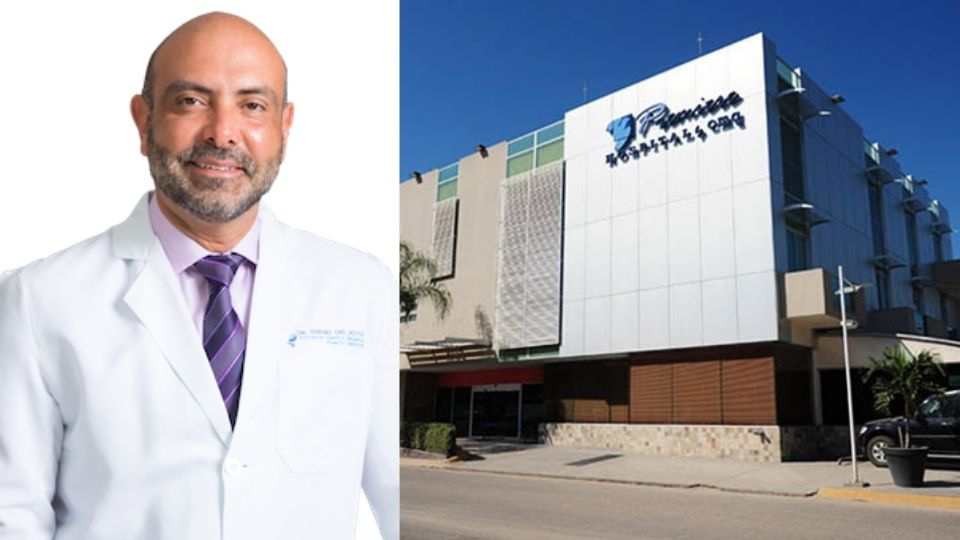Bariatric Surgery Weight Loss
Bariatric surgery, also known as weight loss surgery, is a procedure that aims to help individuals with obesity lose weight by making changes to the digestive system. There are several types of bariatric surgery, each with its own set of benefits and risks.
Gastric bypass surgery:
This is the most common type of bariatric surgery. It involves creating a small stomach pouch and rerouting the small intestine to this new pouch. This limits the amount of food that can be eaten and reduces the absorption of calories.
Benefits: Significant weight loss, improvement, or the resolution of obesity-related conditions such as diabetes and high blood pressure.
Risks: Risks include bleeding, infection, blood clots, and leakage from the surgical site. Long-term risks include nutrient deficiencies, dumping syndrome, and bowel obstruction.
Sleeve gastrectomy:
This procedure involves removing a large portion of the stomach, leaving a smaller stomach “sleeve” that limits the amount of food that can be eaten.
Benefits: Significant weight loss, improvement, or the resolution of obesity-related conditions such as diabetes and high blood pressure.
Risks: Risks include bleeding, infection, blood clots, and leakage from the surgical site. Long-term risks include nutrient deficiencies, stomach obstruction, and stomach perforation.
Adjustable gastric banding:
This procedure involves placing a band around the upper stomach to create a small stomach pouch and slow the passage of food into the small intestine.
Benefits: Significant weight loss, improvement or resolution of obesity-related conditions such as diabetes and high blood pressure.
Risks: Risks include bleeding, infection, blood clots, and leakage from the surgical site. Long-term risks include band slippage or erosion, stomach obstruction, and band infection.
Biliopancreatic diversion with duodenal switch
This is a complex procedure that involves removing a large portion of the stomach, creating a small stomach pouch, and rerouting the small intestine to this new pouch. This limits the amount of food that can be eaten and reduces the absorption of calories.
Benefits: Significant weight loss, improvement, or the resolution of obesity-related conditions such as diabetes and high blood pressure.
Risks: Risks include bleeding, infection, blood clots, and leakage from the surgical site. Long-term risks include nutrient deficiencies, dumping syndrome, bowel obstruction, and chronic diarrhea.
It’s important to note that all bariatric surgery carries risk and should be considered carefully by an experienced bariatric surgeon. Additionally, all types of bariatric surgery require a lifelong commitment to healthy eating and regular exercise.
A gastric sleeve conversion, also known as a sleeve gastrectomy revision, is a procedure in which a gastric bypass or adjustable gastric banding is converted to a sleeve gastrectomy. This is typically done if a patient has experienced weight regain or complications after their initial weight loss surgery.
Benefits:
- Increased weight loss: In some cases, a gastric sleeve conversion can lead to greater weight loss than the initial surgery.
- Improved weight loss maintenance: The sleeve gastrectomy is considered to be more effective at maintaining weight loss long-term than other types of bariatric surgery.
- Resolution of complications: A gastric sleeve conversion can help alleviate complications related to the initial weight loss surgery, such as acid reflux or stomach obstruction.
Risks:
- As with any surgery, there is a risk of bleeding, infection, blood clots, and leakage from the surgical site.
- Long-term risks include nutrient deficiencies, stomach obstruction, and stomach perforation.
- There is also a risk that the patient may not achieve their desired weight loss goals, or that they may experience weight regain after the conversion surgery.
It’s important to note that gastric sleeve conversion is a complex procedure and should be performed by an experienced bariatric surgeon. Additionally, gastric sleeve conversion requires a lifelong commitment to healthy eating and regular exercise, as well as close follow-up with a bariatric team.
Featured Bariatric Surgery Articles
Meet Dr. Carlos Duran in Madrid, Spain
Dr. Carlos Durán Dr. Durán is the Head of the General and Digestive Surgery Services at Quirónsalud La Luz Hospital in Madrid, Spain. He is
Louis’ Incredible Journey in Los Cabos, Mexico
Louis' Incredible Journey in Los Cabos, Mexico
Meet Dr. Humberto Solis in Los Cabos, Mexico
Meet Dr. Humberto Solas in Los Cabos, Mexico
Meet Dr. Sergio del Hoyo in Puerto Vallarta, Mexico
Meet Dr. Sergio del Hoyo in Puerto Vallarta, Mexico
Our Services in Mexico and Dominican Republic
Our Services in Mexico and Dominican Republic
Do Weight Loss Surgeries Really Work ?
The Paradigm Shift We have been told for many years that obesity can be controlled with diet and excercise. But, is this true ? Why
Christine’s Weight Loss Journey in Los Cabos, Mexico
Cosmetic Surgery vs. Weight Loss Surgery Christine is a wonderful woman. She reached out to us because of her interest in cosmetic surgery. However, she
Tired of Overweight? Weight Loss Surgery!
Winning the War Against Overweight/Obesity It is a fact that obesity is a medical condition that needs to be properly addressed. However, there is
Weight Loss Surgery in the Mexican Pacific!
Weight Loss Surgery in the Mexican Pacific!
Celebrity Weight Loss in 2020
As we are in self-isolation it is important for all of us to try to maintain a good healthy balance. Celebrities are no different











